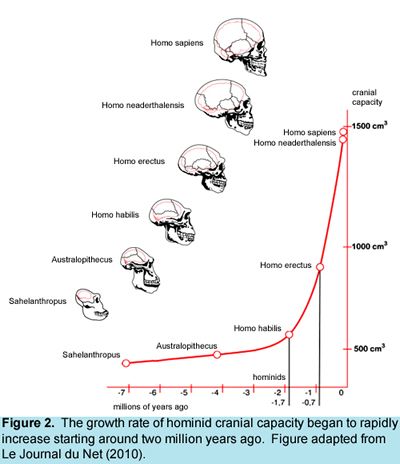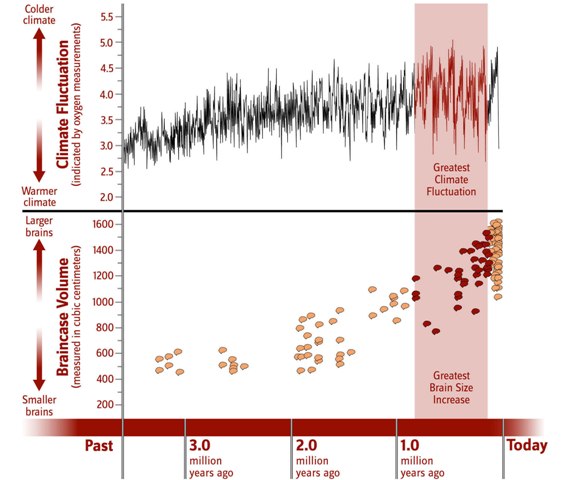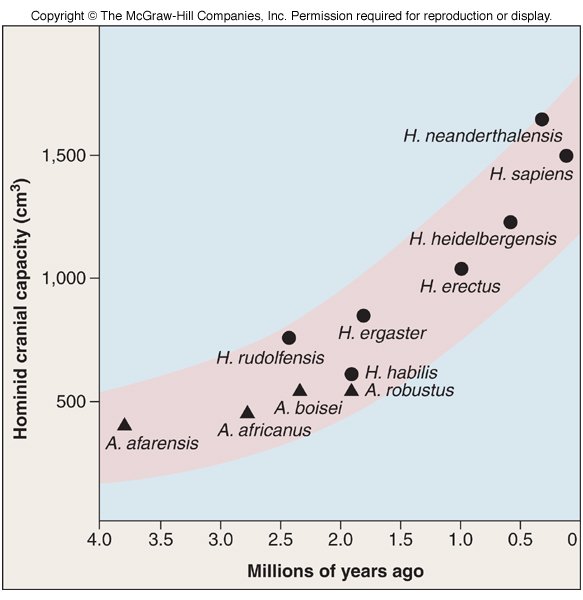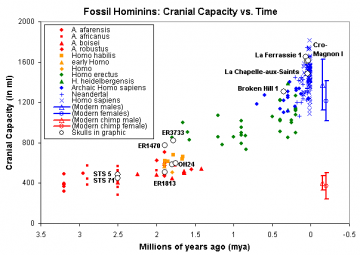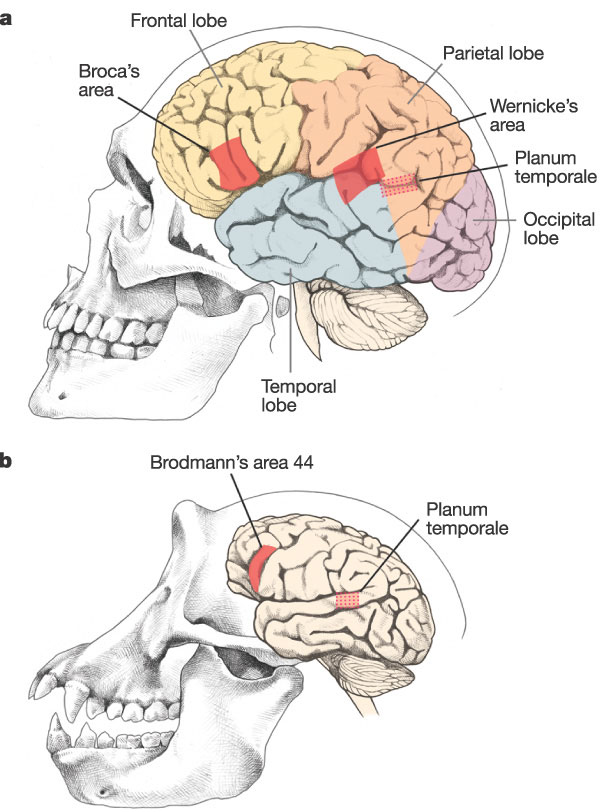We have been told for decades that we are nearly identical to Chimpanzees in our DNA, it's simply not true. That is vitally important when it comes to the human brain since the genes involved in the development of the brain do not respond well to changes of any kind, especially mutations. The human brain is almost three times bigger then the Chimpanzee and there are dramatic differences in the brain related genes. With that in mind consider whether or not the evolution of the human brain from that of apes has any known molecular basis. If not, do you think this creates a logical and scientific disproof of the Darwinian doctrine that men and apes share a common ancestor?
Only 29% of the genes in the comparison of the Chimpanzee Genome and the Human Genome sequences are the same. More importantly, with brain related genes I have yet to see one that had a beneficial effect. These are the effects most often seen:
CharcotMarieTooth (CMT) sensorimotor neuropathy
Infantile spasms, dystonia, and other X-linked phenotypes
Schizophrenia
Brain tumors
Alzheimer's disease
Parkinson's disease
Pick a chromosome, any chromosome and you will find a disease or disorder effecting the human brain as the result of a mutation.
Human Genome Project Landmark Poster
FIGURE 2. Comparative neuroanatomy of humans and chimpanzees. (Genetics and the making of Homo sapiens. Nature April 2003)
Charles Darwin in the preface to On the Origin of Species credits Jean-Baptiste Lamarck with being the first man to propose that the doctrine that species, including man, are descended from other species. This, Darwin argues, being the result of law, and not of miraculous interposition. One of Darwins contemporaries, Gregor Johann Mendel, was doing a series of experiments with pea plants that yielded the laws of inheritance that would become the cornerstone of modern genetics. Darwins book popularized the idea of common decent while Mendels only surviving paper would not be rediscovered for nearly half a century later. Mendelian laws of inheritance became inextricably linked to waves of discovery starting with chromosome theory and culminating in the molecular basis of heredity: The DNA double helix. Darwinism contributed nothing to the waves of discovery but was philosophically commingled with genetics in what has become known as the modern synthesis.
In order to examine the scientific basis for common descent I propose to examine the genetic basis for the common descent of humans from that of apes. The most dramatic and crucial adaptation being the evolution of the human brain. Charles Darwin proposed a null hypothesis for his theory of common descent :
If it could be demonstrated that any complex organ existed, which could not possibly have been formed by numerous, successive, slight modifications, my theory would absolutely break down. (Darwin, On the Origin of Species)
With a cranial capacity nearly three times that of the chimpanzee the molecular basis for this giant leap in evolutionary history is still almost, completely unknown. Changes in brain related genes are characterized by debilitating disease and disorder and yet our decent from a common ancestor with the chimpanzee would have had to be marked by a massive overhaul of brain related genes. I propose that a critical examination of common descent in the light of modern insights into molecular mechanisms of inheritance is the single strongest argument against human/ape common ancestry.
Darwin discussed what he called the 'bane of horticulture', this was infertility. Haldane in 'The Cost of Natural Selection indicated "genetic deaths," which is either deaths or it's equivalents in reduced fertility. He said that it would take 300 generations for a beneficial mutation to become fixed with 1667 accrued in 10 million years.
Like Darwin, he used artificial selection to illustrate what would have had to happen in natural settings:
"especially in slowly breeding animals such as cattle, one cannot cull even half the females, even though only one in a hundred of them combines the various qualities desired." (Haldane, The Cost of Natural Selection)
For us to have evolved from apes it would have required an accelerated evolution of brain related genes. The evolution of the human brain would have had to start it's accelerated evolution on a molecular basis some 2 million years ago and within Homo Erectus (considered human by most creationists) would have had a brain size twice that of the Austropihicene and early Hominids:
Early Ancestors:
A. Afarensis with a cranial capacity of ~430cc lived about 3.5 mya.
A. Africanus with a cranial capacity of ~480cc lived 3.3-2.5 mya.
P. aethiopicus with a cranial capacity of 410cc lived about 2.5 mya.
P. boisei with a cranial capacity of 490-530cc lived between 2.3-1.2 mya.
OH 5 'Zinj" with a cranial capacity of 530cc lived 1.8 mya.
KNM ER 406 with a cranial capacity of 510cc lived 1.7 million years ago.
(See Smithsonian Human Family Tree)
Homo Erectus Skulls:
Hexian 412,000 years old had a cranial capacity of 1,025cc.
ZKD III (Skull E I) 423,000 years old had a cranial capacity of 915cc.
ZKD II (Skull D I) 585,000 years old had a cranial capacity of 1,020cc
ZKD X (Skull L I) 423,000 years ago had a cranial capacity of 1,225cc
ZKD XI (Skull L II) 423,000 years ago had a cranial capacity of 1,015cc
ZKD XII (Skull L III) 423,000 years ago had a cranial capacity of 1,030cc
Sm 3 >100,000 years ago had a cranial 917cc
KNM-WT 15000 (Turkana Boy) 1.5 million years ago had a cranial capacity of 880cc
(Source: Endocranial Cast of Hexian Homo erectus from South China, AMERICAN JOURNAL OF PHYSICAL ANTHROPOLOGY 2006)
Homo habilis that would have lived. 2.51.5 mya with a cranial capacity of ~600 cc. The next link would have been Homo erectus with a cranial capacity of ~1000cc. KNM-WT 15000 (Turkana Boy) would have lived 1.5 mya and the skeleton structure shows no real difference between anatomically modern humans. The skull while smaller then the average cranial capacity of humans but close to twice that of his ancestors of 2 mya.
That means for our ancestors to have evolved it would have required a dramatic adaptive evolution of the size just under 2 mya sandwiched between two long periods of relative stasis. One such gene would have been the HARf regulatory gene involved in the early development of the human neocortex from 7 to 19 gestational weeks. With only two substitutions allowed since the common ancestor of the of 310 mya the divergence between humans and chimpanzees indicates 18 substitutions as early as 2 mya. (Nature, vol. 443, no. 7108, pp. 167-172 September 14, 2006)The ASPM gene while 99.3% the same for the humanchimpanzee comparison is marked by ten insertions/deletions equal to or longer than 50 bp, all of them located within introns. Primary microcephaly (MCPH) is a neurodevelopmental disorder characterized by global reduction in cerebral cortical volume.(Genetics, Vol. 165, 2063-2070, December 2003) In addition, a total of 2014 genes or ~10% of brain related genes analyzed differed in expression between humans and chimpanzees brains.(Genome Res. 14:1462-1473, 2004 ).
Evolutionists used to be able to use a 10 million year timeline, then it was 5 million years but when it comes to the most important adaptation you are looking at less then 1 million years and realistically it's only half that.
Darwin's null hypothesis for common descent is not unanswerable:
If it could be demonstrated that any complex organ existed, which could not possibly have been formed by numerous, successive, slight modifications, my theory would absolutely break down. (Darwin, On the Origin of Species)
If you take the road less traveled and choose to question common descent popularized by Darwin I submit that human brain evolution is prime topic. Darwin's theory is supposed to absolutely break down if a complex organ by decent with modification. My proposal is simply this, the human brain had neither the time nor the means to have evolved from that of apes.
Grace and peace,
Mark

